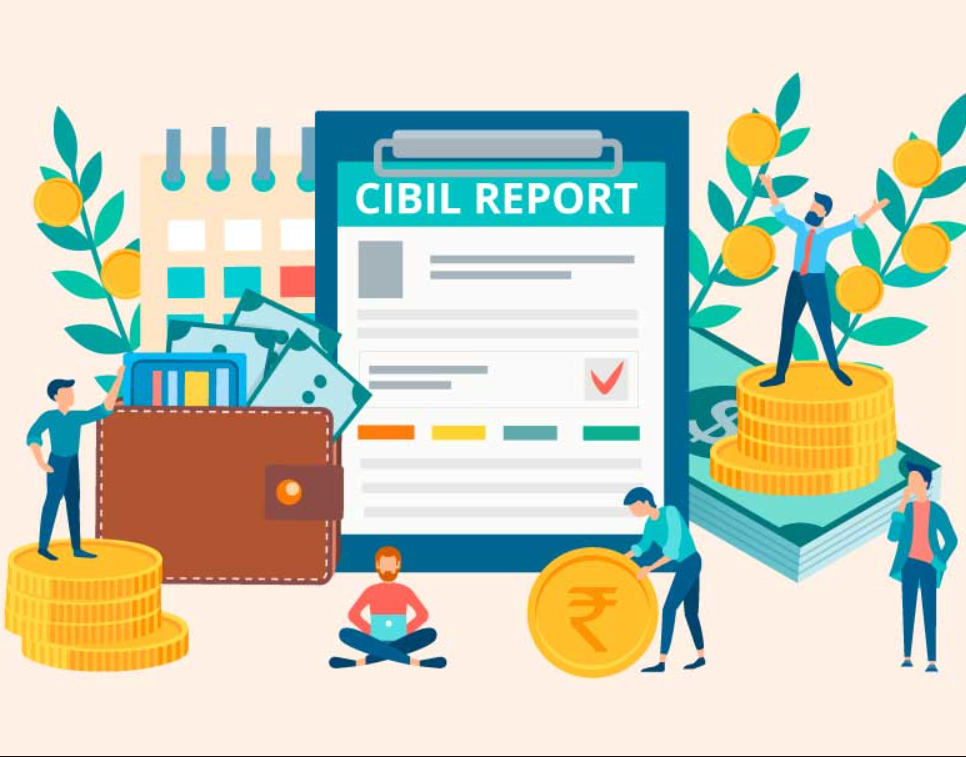Your CIBIL score is a three-digit number that represents an individual’s creditworthiness. When it comes to approving a loan or credit card application, lenders check CIBIL score and consider it as one of the most crucial factors. A higher CIBIL score indicates that the individual has a good credit history and is more likely to repay the loan on time.
However, individuals should understand CIBIL full form and be aware of several misconceptions regarding CIBIL score. Knowing CIBIL full form and checking credit score regularly will help you understand your creditworthiness better and make informed decisions regarding loans and credit cards.
Importance of knowing CIBIL score
A CIBIL score plays a significant role in loan application and approval processes. You may not be eligible for any loans if you have a bad credit history or a low CIBIL score. Once you submit your loan application, the bank will check CIBIL score. If your CIBIL score is good, then your loan application will be considered for approval. However, bad credit history and low CIBIL score may lead to a rejection of your loan application. Banks and financial institutions check CIBIL score when reviewing loan applications. The higher your CIBIL score, the greater the chances of your loan application being approved. Therefore, it is essential to understand CIBIL full form and check CIBIL score to increase your chances of loan approval.
Four Important Facts Regarding Your CIBIL Score
Fact 1: Your payment history is crucial
Your payment history is the most critical factor that affects your CIBIL score. Timely payment of your credit card bills and loan EMIs indicates that you are financially responsible and capable of managing your finances. On the other hand, late or missed payments can severely impact your credit score and may take months or even years to recover from. To maintain a healthy CIBIL score, making timely payments, understanding CIBIL full form and avoiding defaulting on your credit obligations is essential.
Fact 2: Your credit utilisation ratio matters
Your credit utilisation ratio is the percentage of your total credit limit that you are using at any given time. A high credit utilisation ratio suggests you rely heavily on credit and may struggle with your finances. It can also indicate that you are a high-risk borrower and may affect your ability to secure credit in the future. To maintain a healthy CIBIL score, keeping your credit utilisation ratio below 30% is advisable.
Fact 3: Applying for multiple loans can affect your score
Every time you apply for a loan or a credit card, the lender check CIBIL score, which can result in a hard inquiry. Multiple hard inquiries within a short period can lower your CIBIL score and indicate that you are desperate for credit. To avoid this, limit your credit applications and apply for loans only when you genuinely need credit.
Fact 4: Your CIBIL score can improve over time
Your CIBIL score is not static and can improve or worsen depending on your credit behaviour. Understanding CIBIL full form, checking your credit report, paying your bills on time, and maintaining a healthy credit utilisation ratio can help improve your score over time. Even if you have a poor credit score, you can take steps to improve it and build a healthy credit profile. It may take time and effort, but with consistent effort, you can see positive results in your CIBIL score over time.
Advantages of a Good CIBIL Score
A good CIBIL score is important to secure loans or credit cards from lenders. A score of 750 or above is considered a healthy and a good CIBIL score and offers many benefits. Let’s look at some benefits of having a good CIBIL score.
Eligible for Loan
A higher CIBIL score makes you eligible for loans from lenders like banks and non-banking finance companies (NBFCs). A good CIBIL score indicates that you are a responsible borrower and are more likely to repay your loans on time.
Discount on Interest Rate
With a high CIBIL score, you can negotiate for better interest rates on your loans. In some cases, lenders may also offer you a discount on interest rates. A good CIBIL score indicates that you are a low-risk borrower, and lenders are more willing to offer you better interest rates to attract your business.
Position to Negotiate for Better Deals
A high credit score means you have low credit risk and are less likely to default on payments. Banks and other lenders offer preferential pricing to consumers with high CIBIL scores. This means you can negotiate better deals and terms when applying for loans or credit cards.
Summary
Understanding CIBIL full form and a good CIBIL score is critical for individuals who want to secure loans or credit cards from lenders. With a CIBIL score of 750 or above, individuals become eligible for several benefits, including access to credit, better interest rates, faster loan approval, and access to premium credit cards. Maintaining a healthy credit profile is essential to secure these benefits and achieve financial goals. By consistently managing credit and paying bills on time, individuals can improve their credit scores and reap the rewards of a good CIBIL score.
Go to homepage

